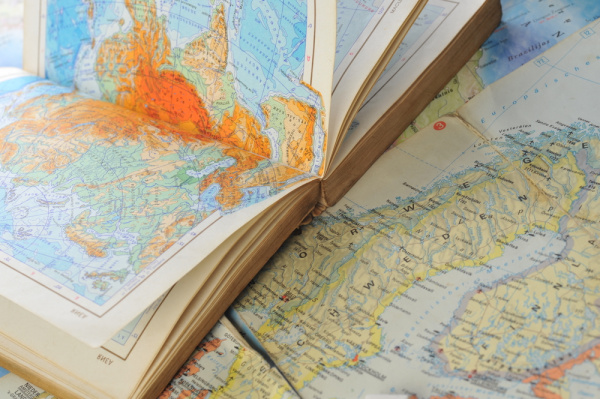Is the internet replacing reference books?
Is the internet replacing reference books?
Is the internet replacing reference books?
-
Hannah
-
Hannah

The Oxford English Dictionary, second edition, explores the historical development of more than 600,000 words in the English language. The first edition was published in sections from 1884 and in full in 1928, and then Oxford University Press published supplements until 1989, when it published the second edition, spanning 21,728 pages. Today, that second-edition dictionary is available from the publisher in 20 print volumes for £862.50.
What of the third volume? Work commenced on that in the year 2000 and is still underway, with a projected finish date in 2037. Oxford University Press has announced that the third volume will be published electronically only: it will be available online, but not in print. The new dictionary will only exist in the digital arena.
Of course, few people would have the need or room for the full Oxford English Dictionary. Most likely you are satisfied with the Oxford Dictionary of English (2,112 pages), or even the Concise Oxford English Dictionary (1,728 pages). But do you have this dictionary on the shelf, or these days do you subscribe to the dictionary at Oed.com for full access to those 600,000 words, or even use a free online dictionary like Lexico, powered by Oxford University Press?
When I was a child, and when I was raising my own children, we had shelf after shelf of reference books. Dictionaries from different sources and in different languages, and a large thesaurus. Map books and atlases. Titles on world history, geography, religion, politics, art, mythology. Huge encyclopaedias covering every topic under the sun.

These weren’t simply coffee table books; they were our home library. We read these books for pleasure, and we delved into them when we needed an answer to a question: where is the island of Nauru? Who was the goddess Ishtar? What does ‘nudiustertian’ mean? For homework studies, and later for research for my novels, reference books were essential.
Sometimes our home collection of books, though large, was insufficient. The knowledge sought could not be found there. Then – and these were happy times – we would turn to the library. There, a librarian would help us find a book on the subject, or order one. Sometimes we would even travel to a bigger library, like the British Library, such a treasure trove of knowledge!
Now, though, we needn’t travel at all, needn’t put in any effort…
We have so much knowledge at our fingertips, on the computer or, even more immediate, on the screen of our phone. Nauru, Ishtar, nudiustertian* – we can answer these questions in seconds. We don’t need to hunt for the correct books; we don’t need to leaf through them in search of what we’re seeking. We don’t need to consider asking an expert like a librarian for help (and even if we did, they are something of a dying breed). We simply type our key terms into a search engine, scan the results, click, and more often than not, we have the information we need.
Of course, I am not a technophobe; I absolutely use the internet for research. To learn about the history of the Oxford English Dictionary for this article, I visited the website of Oxford University Press. The internet is invaluable for me when I research my novels: I read and read and read.
But I also read reference books, and that is the research I most enjoy.

Reading a dictionary in my garden in France
How can a bibliophile fail to love reference books? They are often big and weighty and solid; they have an air of importance and permanence about them. They are ‘keepers’, the basis for a library of knowledge.
To me, reference books say, ‘Read me and you will learn about this complicated and beautiful world.’ Dip into a reference book and you don’t only learn about the specific topic you are looking up; invariably during your search for the answer, you stumble upon new knowledge. If you look up the age of the Pyramids at Giza, you may well find you deviate into reading about the other Wonders of the Ancient World: before you know it you’ve journeyed from Ancient Egypt to Ancient Greece.
Recently, I have been packing boxes in preparation for a house move, and when I reached my shelves of reference books (not all of them by any means, but the ones I keep to hand in my study), I found I was unwilling to part with any. Of course I could look up a synonym for a word quickly and easily online, and yet into the box went my big thesaurus; into the box went all of my reference books. They are important, I feel, for my writing – but also for my learning.
Two lines from a poem by Henry Wadsworth Longfellow convey how I feel about my home library:
The love of learning, the sequestered nooks,
And all the sweet serenity of books;
(From ‘Morituri Salutamus’, 1825)
Is the internet replacing reference books? Oh, I do hope not. What a loss that would be.
* In case you were wondering, nudiustertian is an old-fashioned adjective that means ‘of or relating to the day before yesterday’.
Photo credits: 1) Stokkete/Shutterstock; 2) Denis Tabler/Shutterstock.
One thing I didn’t like when I was studying, was reading reference materials online. I hated it! I would much rather have a book in my hands and read that way. Which is why I have so many books at home, I just love them